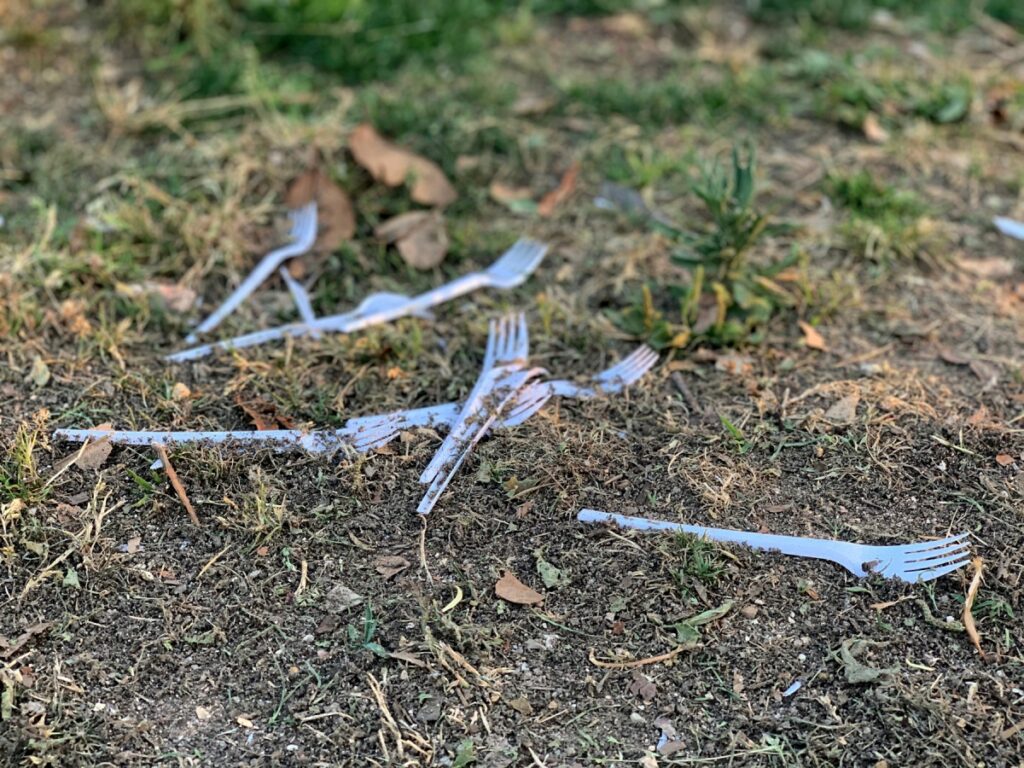Oceana, as part of the BreakFreeFromPlastic movement, adds its voice to that of more than one hundred thousand people who have signed against a draft that would make it possible to replace some types of plastic with others and continue to manufacture single-use products prohibited by Directive 2019/904. This Wednesday, the European Commission will discuss with the Member States the guidelines for transposing the directive to the national level. These include definitions of what is considered plastic that could exclude materials such as cellophane, rayon and viscose, freeing the industry to continue manufacturing numerous disposable items.
Rethink Plastic, BreakFreeFromPlastic and WeMove.eu have launched this signature collection to prevent the single-use plastics directive from becoming wet paper. This legislation establishes reduction targets, bans and other measures to minimize the discharge of single-use plastics into the environment, especially in the oceans. EU Member States must apply it before July 3, 2021.
“Single-use plastic is a blight on the oceans. Spain must raise its voice to prevent technical details from diluting the effectiveness of the best tool the EU has to fight this problem. We cannot lose sight of the fact that the objective is to reduce the discharge of plastics into the environment and therefore we must not allow producers to shirk their responsibilities ” , says Natividad Sánchez, director of the Oceana Plastics campaign in Europe.

The proposed definition of plastic would make it possible to substitute one product for another. Thus, disposable straws and cutlery could be made using cellophane, even though the directive prohibits these products. Rayon and viscose menstrual items, as well as cigarette filters, could also be sold without having to comply with the labeling requirements, awareness-raising measures and cost of waste collection required by Community regulations.
Likewise, the draft of the guidelines incorporates exceptions for packages containing several servings, apart from the fact that it is common to find them as dispersed garbage. The NGOs warn that this would allow to easily change the labeling to take-out containers, snack bags, and candies, among others, so that they are not considered single-use plastic. Candy wrappers are among the most commonly found waste on beaches.
Oceana works actively to ensure an ambitious transposition of the EU directive in Spain and thus protect its marine environment. His latest action has been the claim to the Spanish Executive of more ambitious measures to apply said law. In this sense, the organization calls for banning the release of balloons, eliminating disposable cups and containers from public administration buildings, as well as bars and restaurants, promoting return systems and applying a final tax on single-use plastic.
More information: Collection of signatures